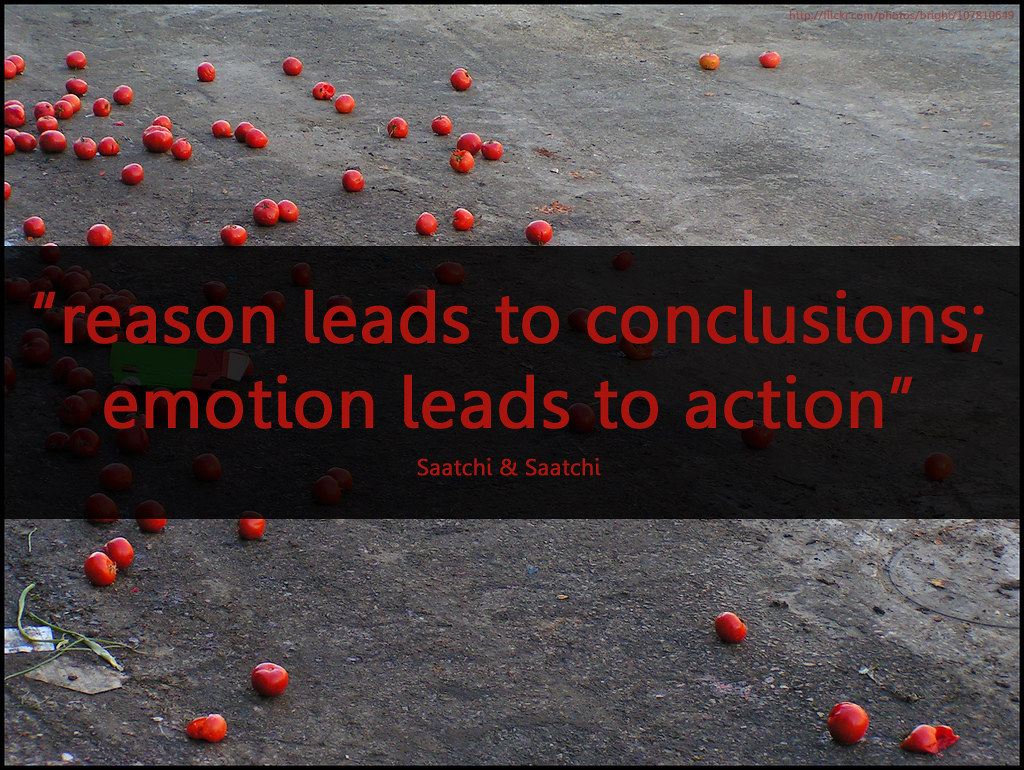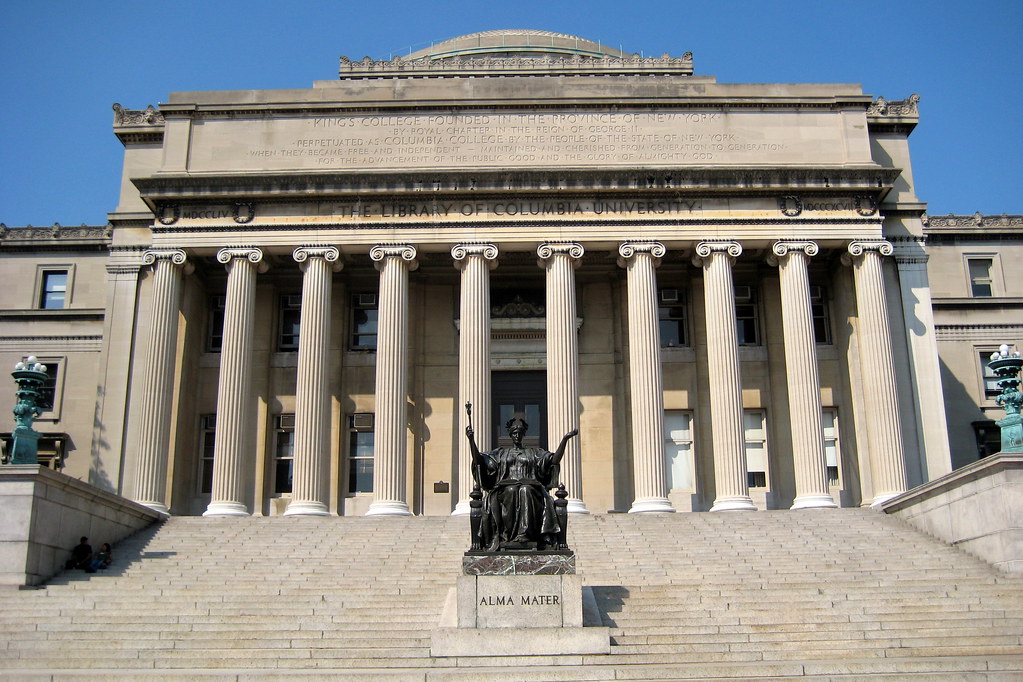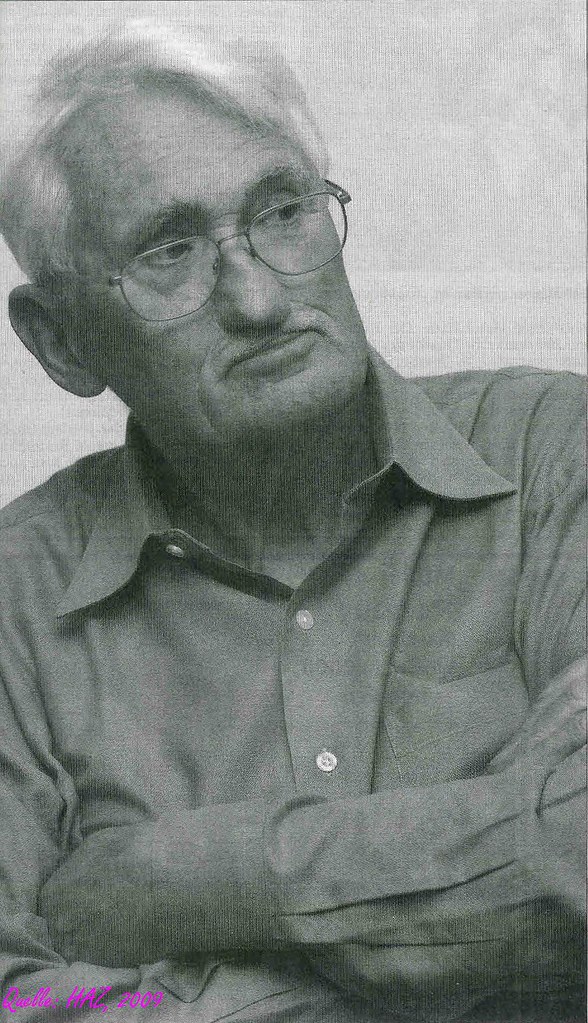
In the grand tapestry of human cognition, few concepts hold as much sway, yet remain as elusive, as ‘reason.’ It is the very bedrock upon which our understanding of the world is built, the silent architect of our societal structures, and the invisible hand guiding our most profound inquiries. Yet, for something so fundamental, its true nature, its historical trajectory, and its myriad applications often remain shrouded in academic esoterica, a subject reserved for philosophers and scholars.
But what if we were to peel back these layers? What if we were to embark on an intellectual odyssey, much like a meticulous investigation into a complex cultural phenomenon, to truly grasp the essence of this powerful human faculty? This is precisely our endeavor: to delve into the ‘real reasons’ behind reason itself, tracing its multifaceted definitions, its ancient origins, and its profound transformation through centuries of human thought, from the hallowed halls of classical antiquity to the dawn of modernity.
Join us as we unpack the intricate narrative of reason, a journey that reveals not just a dry academic concept, but a vibrant, evolving force that has shaped civilizations and continues to define what it means to be human. We will illuminate its distinguishing characteristics, explore its rich etymological heritage, and examine how great minds across diverse eras have grappled with its meaning and implications, uncovering the ‘why’ and the ‘how’ of our most sophisticated mental capacity.

1. **The Multifaceted Definitions of “Reason”**
To truly grasp the concept of reason, one must first confront its rich semantic landscape. Far from being a monolithic idea, ‘reason’ is a term imbued with a spectrum of meanings, often overlapping with, yet distinct from, related notions such as ‘explanation,’ ‘grounds,’ ‘basis,’ ‘excuse,’ ‘motive,’ ‘justification,’ and ‘pretext.’ These words, while all pointing to a cause or an explanation for something, each carry their own nuanced weight, reflecting different facets of why something occurs or why an action is taken.
For instance, ‘reason’ itself is defined as “a cause or an explanation for something that has happened or that somebody has done; a fact that makes it right or fair to do something.” It is the fundamental ‘why.’ An ‘explanation,’ on the other hand, is “a statement, fact or situation that tells you why something has happened; a reason given for something,” often highlighting the articulation of that cause. The distinction deepens when we consider ‘grounds,’ a more formal term for “a good or true reason for saying, doing or believing something,” implying a solid, often legal or ethical, foundation.
Delving further, ‘basis’ is another formal term, signifying “the reason why people take a particular action,” emphasizing the underlying principle of a decision. ‘Excuse,’ however, introduces an element of defense or desire: “a reason, either true or invented, that you give to explain or defend your behaviour; a good reason that you give for doing something that you want to do for other reasons.” This highlights the subjective and often self-serving nature of explanation. ‘Motive’ narrows the focus to “a reason that explains somebody’s behaviour,” particularly in actions with intent.
The most formal of these, ‘justification,’ denotes “a good reason why something exists or is done,” often implying an ethical or logical defense of an action. The text clarifies that “Justification is used to talk about finding or understanding reasons for actions, or trying to explain why it is a good idea to do something.” This contrasts with ‘grounds,’ which refers to “reasons that already exist, or that have already been decided, for example by law: moral/economic grounds.” Finally, ‘pretext’ offers a more deceptive twist: “a false reason that you give for doing something, usually something bad, in order to hide the real reason.” This diverse vocabulary underscores the complexity of reason, not merely as a mental process, but as a concept deeply embedded in our language and our attempts to understand the world and each other.
Read more about: Unpacking the Building Blocks of Thought: An Accessible Deep Dive into the World of Concepts

2. **Reason as Humanity’s Distinguishing Faculty**
Beyond its varied definitions, reason stands as a testament to the unique capabilities of the human mind, often hailed as the defining characteristic that sets us apart in the natural world. It is described as “the capacity of consciously applying logic by drawing valid conclusions from new or existing information, with the aim of seeking truth.” This isn’t merely about processing information; it’s about an active, conscious engagement with knowledge to transcend the known and arrive at novel insights or verifiable truths.
This profound capacity is intricately linked with a host of characteristically human pursuits, including “philosophy, religion, science, language, and mathematics.” These fields, diverse as they are, all share a common thread: they rely on the systematic application of thought to explore, explain, and shape our reality. Reason is not just a tool for calculation; it is the very engine driving our quest for meaning, our scientific advancements, and the intricate structures of our communication and numerical understanding.
While reason is sometimes used interchangeably with ‘rationality,’ the distinction lies in their application: ‘reason’ is the inherent capacity, while ‘rationality’ refers more to its actual use. The process of reasoning itself involves employing “more-or-less rational processes of thinking and cognition to extrapolate from one’s existing knowledge to generate new knowledge,” engaging one’s intellect in a dynamic dance of discovery. This ability to move from existing ideas to related, often new, ideas is what allows for true intellectual growth and innovation.
Indeed, the field of logic, as a subdivision of philosophy, dedicates itself to studying “the ways in which humans can use formal reasoning to produce logically valid arguments and true conclusions.” It is the blueprint for sound thought, enabling us to differentiate between coherent and incoherent claims. As a part of executive decision-making, reason is also “closely identified with the ability to self-consciously change, in terms of goals, beliefs, attitudes, traditions, and institutions,” thus linking it fundamentally to our capacity for freedom and self-determination. This makes reason not just an intellectual tool, but a force for personal and collective evolution.

3. **The Etymological Journey of “Reason”: From Logos to Ratio**
The rich and complex history of the word ‘reason’ itself offers a fascinating window into its philosophical evolution, particularly through its origins in classical languages. In English and other modern European tongues, ‘reason’ and its cognates have consistently served to translate seminal Latin and classical Greek terms within their profound philosophical contexts. This linguistic lineage underscores a continuous intellectual tradition stretching back millennia, highlighting how fundamental the concept has been to Western thought.
The foundational Greek term was “λόγος” (logos), a word with an astonishing breadth of meaning. Beyond its philosophical connotations of ‘logic,’ logos could also signify ‘speech,’ ‘explanation,’ or even an ‘account’ in a financial sense. This versatility suggests that for the ancient Greeks, the act of coherent speech, the giving of an explanation, and the logical structuring of thought were intimately intertwined, perhaps seen as different manifestations of the same underlying rational principle. Logos, therefore, wasn’t just about abstract thought; it was about its articulate expression.
When logos transitioned into Latin, specifically in its non-linguistic philosophical senses, it was translated as “ratio.” This Latin term also carried multiple meanings, including ‘account’ in the financial sense, mirroring one of logos’s nuances, but critically, it also encapsulated the philosophical meaning of reasoned thought. The influence of these classical terms was pervasive, shaping the intellectual landscape of Europe for centuries, as evidenced by the French “raison,” another direct descendant.
Early major philosophers writing in English, such as Francis Bacon, Thomas Hobbes, and John Locke, were deeply immersed in this linguistic tradition. They routinely wrote in both Latin and French, often comparing their own terms to Greek, and treating “logos,” “ratio,” “raison,” and “reason” as largely interchangeable. This historical fluidity of the term underscores a continuous intellectual lineage, where the ‘meaning of the word ‘reason’ in senses such as ‘human reason’ also overlaps to a large extent with ‘rationality,'” with the philosophical adjective typically being ‘rational’ rather than ‘reasoned’ or ‘reasonable.’ This enduring etymological journey reveals reason as a concept with deep historical roots, constantly reinterpreted and reaffirmed across languages and philosophical epochs.

4. **Classical Philosophy’s Teleological View of Reason**
The classical philosophical tradition, particularly in ancient Greece, imbued reason with a cosmic significance, viewing it not merely as a human faculty but as an intrinsic principle woven into the very fabric of existence. For many classical thinkers, “nature was understood teleologically, meaning that every type of thing had a definitive purpose that fit within a natural order that was itself understood to have aims.” This profound worldview extended even to the cosmos itself, which, perhaps originating with Pythagoras or Heraclitus, was “even said to have reason.” This wasn’t merely metaphorical; it suggested a divine, inherent rationality guiding the universe.
Within this grand teleological scheme, human reason was elevated to a position of supreme importance. It was considered of “higher stature than other characteristics of human nature, because it is something people share with nature itself, linking an apparently immortal part of the human mind with the divine order of the cosmos.” This perspective connected the individual human intellect to a universal, divine intelligence, making the exercise of reason a participation in the highest reality. Reason, in this view, was not an accidental attribute but a fundamental connection to the ultimate truth and order of the universe.
Plato, one of the most towering figures of classical philosophy, famously described reason (logos) within the human mind or soul (psyche) as the “natural monarch which should rule over the other parts, such as spiritedness (thumos) and the passions.” This hierarchical view emphasized reason’s role as the guiding principle for a virtuous and balanced life, keeping baser impulses in check. For Plato, a life governed by reason was a life aligned with the harmonious order of the cosmos, leading to intellectual and moral excellence.
Aristotle, Plato’s brilliant student, further cemented reason’s central role by defining human beings as “rational animals,” emphasizing reason as the defining characteristic of human nature. He went on to describe the “highest human happiness or well being (eudaimonia) as a life which is lived consistently, excellently, and completely in accordance with reason.” This classical understanding, that reason is our essence and the path to ultimate fulfillment, laid an enduring foundation for philosophical inquiry. “The conclusions to be drawn from the discussions of Aristotle and Plato on this matter are amongst the most debated in the history of philosophy,” yet their profound insights into reason’s teleological and intrinsically human role remain cornerstones of Western thought.

5. **The Enduring Legacy of Reason in Christian and Islamic Thought**
The profound classical view of reason, with its teleological underpinnings and emphasis on human connection to divine order, did not merely fade with the decline of ancient empires; it was robustly adopted and reinterpreted by the burgeoning intellectual traditions of early Christian and Islamic philosophy. This demonstrates reason’s remarkable adaptability and its foundational role across diverse theological frameworks, showcasing its universal appeal as a pathway to understanding both the self and the divine.
The early Church, recognizing the intellectual power and explanatory depth of classical philosophy, seamlessly integrated the concept of reason into its burgeoning doctrines. “The greatest among the early Church Fathers and Doctors of the Church such as Augustine of Hippo, Basil of Caesarea, and Gregory of Nyssa were as much Neoplatonic philosophers as they were Christian theologians,” directly adopting the Neoplatonic understanding of human reason. This assimilation provided a robust intellectual framework for comprehending humanity’s relationship to creation, to self, and to God, positioning reason as a divinely bestowed faculty enabling spiritual and intellectual ascent.
Parallel to this, the Neoplatonic conception of the rational aspect of the human soul found extensive adoption among medieval Islamic philosophers, continuing to hold significant sway in Iranian philosophy even today. Esteemed scholars such as Averroes and Avicenna played pivotal roles in preserving, translating, and elaborating upon classical texts, ensuring that the flame of rational inquiry continued to burn brightly during Europe’s Dark Ages. Their contributions, alongside the Christian Patristic tradition, were instrumental in the development of the Scholastic view of reason, laying a critical foundation for modern understandings of the concept.
Among the Scholastics, Saint Thomas Aquinas stands out as a colossal figure, placing the classical concept of reason at the very heart of his Natural Law doctrine. Aquinas reasoned that “because humans have reason and because reason is a spark of the divine, every single human life is invaluable, all humans are equal, and every human is born with an intrinsic and permanent set of basic rights.” This groundbreaking assertion, rooted in reason, became the philosophical bedrock upon which the modern idea of human rights would later be constructed by Spanish theologians at the School of Salamanca, highlighting reason’s power to inform ethical and legal frameworks that champion human dignity.
Furthermore, other Scholastics like Roger Bacon and Albertus Magnus, drawing inspiration from Islamic scholars such as Alhazen, underscored reason’s intrinsic human ability “to decode the created order and the structures that underlie our experienced physical reality.” This interpretative lens on reason was not merely theological; it was profoundly instrumental in the “development of the scientific method in the early Universities of the high Middle Ages.” Thus, reason, initially a teleological and spiritual connector, transformed into a powerful tool for empirical investigation, bridging faith and early scientific inquiry.

6. **Early Modernity’s Shift to Subject-Centred Reason**
The early modern era heralded a seismic shift in the understanding of reason, particularly in Europe, fundamentally altering its metaphysical underpinnings and its perceived place in the cosmic order. This period witnessed a growing skepticism towards the ancient teleological worldview, where “nature was no longer assumed to be human-like, with its own aims or reason.” Instead, a new scientific paradigm began to take hold, one that viewed human nature as operating under the same “laws of nature” that governed inanimate objects, effectively displacing the spiritual understanding of the universe that had prevailed for centuries.
René Descartes, a pivotal figure in this intellectual revolution of the 17th century, explicitly challenged the traditional notion of humans as “rational animals.” He proposed a radically different understanding, suggesting instead that humans are “nothing more than ‘thinking things’ along the lines of other ‘things’ in nature.” This reclassification dramatically reshaped the foundation of knowledge, with any grounds outside of this new, objectified understanding becoming subject to doubt. Descartes sought an irrefutable starting point, finding it only in the undeniable act of thinking itself.
In his relentless pursuit of a secure foundation for all possible knowledge, Descartes famously doubted everything except the very activity of the mind in the process of thought. He articulated this revelation, stating: “At this time I admit nothing that is not necessarily true. I am therefore precisely nothing but a thinking thing; that is a mind, or intellect, or understanding, or reason—words of whose meanings I was previously ignorant.” This powerful assertion marked the birth of what became known as epistemological or “subject-centred” reason, placing the knowing subject at the core of all inquiry.
This new paradigm positioned the individual consciousness as the primary lens through which the rest of the world and even the self were perceived as “a set of objects to be studied, and successfully mastered, by applying the knowledge accumulated through such study.” Unlike previous philosophical traditions, Descartes, breaking with convention, did not divide the incorporeal soul into distinct parts like reason and intellect. Instead, he described them as “one indivisible incorporeal entity,” further consolidating the subject’s unified role in rational apprehension.
A contemporary of Descartes, Thomas Hobbes, offered a complementary yet distinct interpretation, describing reason as a broader form of “addition and subtraction,” extending beyond mere numbers. This understanding, sometimes termed “calculative” reason, aligned with Descartes’s emphasis on empirical and logical precision. Hobbes, too, asserted limitations on absolute knowledge, stating that “No discourse whatsoever, can end in absolute knowledge of fact, past, or to come” but that “sense and memory” constitute absolute knowledge, further anchoring reason in the realm of the observable and experientially verifiable, signaling a profound departure from the teleological and divine reason of antiquity.
The preceding sections have meticulously mapped the foundational definitions and early philosophical evolutions of reason, guiding us from its ancient teleological roots through the significant paradigm shift of early modernity. This intellectual journey, much like piecing together a complex narrative, has illuminated how deeply ingrained this faculty is in our understanding of ourselves and the cosmos. Yet, the story of reason is far from concluded; it is a dynamic concept, continually subjected to rigorous critique and reinterpretation, revealing layers of complexity that challenge and enrich our comprehension.
Now, we turn our gaze to the profound philosophical challenges and reinterpretations that emerged in the wake of early modern thought. This next chapter in reason’s biography unveils skeptical inquiries that questioned its very authority, transcendental projects that sought to re-establish its foundations, and contemporary models that grapple with its fragmented nature. We will also meticulously unpack reason’s intricate relationships with other vital human faculties: logic, symbolic thinking, imagination, and memory, recognizing that the ‘real reasons’ behind reason are as diverse as the human experience itself.

7. **Hume’s Skepticism and the Subordination of Reason**
As the Enlightenment progressed, challenging established certainties became a hallmark of intellectual inquiry, and few figures embodied this spirit of skepticism as powerfully as David Hume. Building upon the empiricist traditions of John Locke and René Descartes, Hume steered philosophical thought in an audacious new direction, fundamentally questioning reason’s capacity for absolute knowledge, particularly concerning cause and effect. He argued that our belief in causality stems not from logical deduction but from habit and repeated observation, proposing that “there could be no possibility of deducing relationships of cause and effect, and therefore no knowledge is based on reasoning alone, even if it seems otherwise.”
Perhaps his most provocative assertion, and one that sent ripples through the philosophical community, was his declaration regarding the relationship between reason and emotion. Hume famously remarked that, “We speak not strictly and philosophically when we talk of the combat of passion and of reason. Reason is, and ought only to be the slave of the passions, and can never pretend to any other office than to serve and obey them.” This radically inverted the classical view of reason as the dominant, guiding force of the soul, instead relegating it to a subordinate role, serving the more fundamental drives of human passions. It was a profound statement that underscored the limits of pure intellect in motivating human action and belief.
Hume further extended his skeptical lens to the very nature of reason itself, arguing that human reason was not qualitatively distinct from simply conceiving individual ideas or forming basic judgments. He even proposed that “reason is nothing but a wonderful and unintelligible instinct in our souls, which carries us along a certain train of ideas, and endows them with particular qualities, according to their particular situations and relations.” This led him to the then-unorthodox conclusion that animals, too, possess reason, albeit a much less complex version than that found in humans, blurring the clear lines that previous philosophers had drawn to distinguish humanity through this singular faculty.

8. **Kant’s Transcendental Project and Universal Laws**
The intellectual landscape left by Hume’s radical skepticism demanded a profound response, and it came from the towering figure of Immanuel Kant. In the 18th century, Kant embarked on a monumental philosophical project, specifically aiming to refute Hume’s conclusions by demonstrating that a “transcendental” self, or “I,” was not merely an illusion but a necessary condition for all human experience. Through this groundbreaking insight, Kant argued that it is indeed possible to reason about the fundamental conditions and inherent limits of human knowledge, thereby salvaging reason from the depths of Humean doubt.
Kant’s work established reason not just as a faculty for understanding the world, but as a robust “vehicle of morality, justice, aesthetics, theories of knowledge (epistemology), and understanding.” For Kant, the pinnacle of reason (which he termed *Vernunft* in German) lay in its unique ability to exercise a form of universal law-making. He meticulously reformulated the basis of moral-practical, theoretical, and aesthetic reasoning upon these ‘universal’ laws, providing a systematic framework for how humans can construct knowledge and ethical principles that apply beyond individual, subjective experience.
Within this framework, practical reasoning emerged as the self-legislating formulation of universal norms, while theoretical reasoning defined the human capacity to posit universal laws of nature. Crucially, Kant asserted that the moral autonomy and freedom of individuals depend directly on their ability to act according to these reason-given laws. This marked a stark contrast to earlier ethical systems rooted in religious interpretations or natural impulses, as it positioned human reason itself as the ultimate source of moral authority. To exemplify this, Kant famously articulated the “categorical imperative,” a principle that dictates an action is justified only if it can be universalized: “Act only according to that maxim whereby you can, at the same time, will that it should become a universal law.”
In his direct challenge to Hume, Kant insisted that reason could indeed address metaphysical problems, particularly in discovering the foundations of morality. This was made possible, he argued, through his “transcendental logic”—a conceptual tool unlike Aristotle’s indifferent instrument. For Kant, transcendental logic was a theoretical science in its own right, forming the indispensable basis for all other sciences and demonstrating reason’s inherent power to uncover fundamental truths, thereby cementing its central, enduring role in human understanding.

9. **Habermas’s Formal Spheres of Reason**
Moving into the contemporary philosophical landscape, Jürgen Habermas offered a significant reinterpretation of reason, particularly concerning its scope and capabilities in modern society. He contended that the traditional, holistic “substantive unity” of reason, which once provided comprehensive answers to questions like “How should I live?” in pre-modern societies, has irrevocably dissolved. In its place, Habermas proposed that the unity of reason must now be understood as strictly formal or “procedural,” reflecting the increasing specialization and differentiation of modern life.
Habermas delineated reason into three distinct, autonomous spheres, drawing inspiration from Kant’s critiques. The first is **Cognitive-instrumental reason**, which is the domain of the sciences, focused on observing events, predicting and controlling outcomes, and intervening in the world based on hypotheses. This sphere is all about empirical investigation and technological application. The second is **Moral-practical reason**, which we employ to deliberate and discuss ethical and political issues, guided by universalizable procedures, much like Kant’s categorical imperative. This sphere addresses questions of justice, fairness, and collective decision-making.
The third sphere, **Aesthetic reason**, is typically encountered in works of art and literature. It encompasses novel ways of seeing the world and interpreting phenomena, fostering new perspectives and understandings that transcend purely logical or ethical frameworks. These three spheres, according to Habermas, are largely the domain of experts within their respective fields, requiring mediation by philosophers to bridge their specialized insights with the broader “lifeworld”—the everyday experiences and understandings of ordinary people.
By articulating this sophisticated model of formalizable procedures, Habermas aimed to compensate for the lost substantive unity of reason. His framework demonstrates how, even in a fragmented modern world, reason can still provide coherent guidance across diverse aspects of human existence, allowing for rational discourse and progress within distinct but interconnected domains, ensuring that our intellectual endeavors remain grounded in systematic inquiry.

10. **The Interplay of Reason and Logic**
While the terms ‘reason’ and ‘logic’ are frequently used interchangeably in everyday language, often perceived as identical or with logic as reason’s purest form, philosophical inquiry reveals a more nuanced relationship. It is often stated that “Logic is about reasoning—about going from premises to a conclusion. … When you do logic, you try to clarify reasoning and separate good from bad reasoning.” Indeed, in fields like modern economics, rational choice is often equated with logically consistent choice, underscoring the perceived strong link.
However, a deeper exploration suggests that reason and logic, though intimately connected, are distinct. Logic represents a system of formal rules or norms for appropriate reasoning, operating *within* a defined framework. Reason, on the other hand, can be understood as the broader cognitive capacity that can operate *outside* such systems. Author Douglas Hofstadter vividly captures this distinction, stating that “Logic is done inside a system while reason is done outside the system by such methods as skipping steps, working backward, drawing diagrams, looking at examples, or seeing what happens if you change the rules of the system.”
Psychologists Mark H. Bickard and Robert L. Campbell further reinforce this idea, arguing that “rationality cannot be simply assimilated to logicality.” They point out that human knowledge of logic and logical systems itself developed through reasoning, and logical systems “can’t construct new logical systems more powerful than themselves.” This suggests that reason encompasses a generative, metacognitive capacity that precedes and informs the very creation and evolution of logical systems. Psychologist David Moshman, building on this, advocates for a “metacognitive conception of rationality” where the development of reason involves increasing consciousness and control over both logical and other inferences.
The historical trajectory of logic underscores its intimate yet distinct relationship with reason. The oldest surviving Western writings that systematically codified the rules of reason are Aristotle’s *Prior Analytics* and *Posterior Analytics*. While the ancient Greeks lacked a separate word for logic distinct from language and reason, Aristotle’s coining of “syllogism” (syllogismos) effectively identified logic as a specific field of study for the first time. Even then, his use of “the logical” (*hē logikē*) referred more broadly to rational thought. In philosophy, logic is a subdivision of reasoning, traditionally divided into deductive and inductive forms, with further distinctions like analogical and abductive reasoning, and the identification of fallacious reasoning, all serving to refine and formalize the diverse pathways by which reason operates.
Read more about: Deep Scars in Protected Lands: Unraveling the Massive Illegal Operation and Systemic Threats within U.S. National Parks
11. **Reason, Cause-and-Effect, and Symbolic Thinking**
The capacity for reason is frequently highlighted as a hallmark of human cognition, distinguishing us from the animal kingdom. While philosophers like Hobbes, Locke, and Hume acknowledged that some animals are capable of a form of “associative thinking”—even linking causes and effects, such as a dog learning to avoid being kicked—they clarified that this does not equate to reason in its strict sense. Such associative learning, or acting on experience and habit, while adaptive, falls short of the conscious, explanatory depth characteristic of human reason.
True human reason, therefore, demands more than merely associating two ideas, even if those ideas appear to be a cause and its effect. For instance, while a human might associate the perception of smoke with the memory of fire, reason enters the equation when this association is thoughtfully processed and articulated as a cause-and-effect relationship. As Locke explained, this often requires the mental use of a “third idea” to facilitate such a comparison, enabling the formation of a syllogism that moves beyond simple sensory input.
More broadly, the philosopher Charles Sanders Peirce illuminated the essential role of symbolic thinking in reason. He proposed that reason, in its strict sense, necessitates the ability to create and manipulate a system of symbols, alongside indices and icons. These symbols, unlike direct sensory experiences or associative links, possess only a nominal, though habitual, connection to what they represent—whether it be smoke or fire. Language itself stands as a prime example of such a complex system of symbols and signs, fundamentally intertwined with our capacity for reason.
This profound connection between reason and symbolic thinking has been explored by various thinkers. Thomas Hobbes, for example, described the creation of “Markes, or Notes of remembrance” as a form of speech, using ‘speech’ as an English equivalent of the Greek *logos*, implying that this internal symbolic articulation did not necessarily require external communication. When these ‘marks’ were communicated, they became language, and Hobbes referred to them as “Signes.” Even Aristotle, while asserting human exclusivity to reason (*logos*), conceded that animals possessing imagination and persistent sense perceptions come closest to a form of reasoning, even using *logos* to describe the distinctions they could perceive in such instances, further underscoring the subtle gradations of cognitive capacities.
12. **Reason, Imagination, Mimesis, and Memory**
The exploration of reason invariably leads to its deep connections with other intricate mental faculties, particularly imagination, mimesis, and memory. It is clear that “Reason and imagination rely on similar mental processes,” yet their interplay and unique human characteristics warrant careful distinction. While Aristotle noted that *phantasia* (imagination, or the capacity to hold images) and *phronein* (a type of judging and understanding) exist in some animals, these are tied to primary perceptive abilities that order perceptions without distinguishing universals or engaging in deliberation. Human imagination, however, operates on a qualitatively different plane, central to our reasoning capacity.
Terrence Deacon and Merlin Donald have compellingly linked reason not only to language but also to *mimesis*, or the capacity for intentional representation. They theorize that the uniquely human ability to create language stems from an internal modeling of reality, which also gives rise to consciousness and imagination, or fantasy. This perspective is supported by modern proponents of a genetic predisposition to language, such as Noam Chomsky and Steven Pinker, suggesting a profound evolutionary leap in human cognitive architecture that intertwines these capacities.
If reason is indeed symbolic thinking and uniquely human, it implies a singular human ability to consciously differentiate between “icons,” or mental images, and the real things they represent. Merlin Donald illustrates this by noting, “A dog might perceive the ‘meaning’ of a fight that was realistically play-acted by humans, but it could not reconstruct the message or distinguish the representation from its referent (a real fight).” In contrast, trained apes and young children readily make this distinction, effortlessly discerning between a simulated event and reality itself. This capacity, known in Plato’s philosophy as *eikasia*, is the faculty to perceive if a perception is an image—related but not identical—thereby allowing us to understand that dreams, memories, or reflections are not reality itself.
Furthermore, what Klein terms *dianoetic eikasia* specifically pertains to thinking and mental images, including the symbols, icons, and marks central to reason. This view suggests that human thinking is extraordinary because we often interpret visible phenomena as images of our intelligible “objects of thought,” serving as ‘foundations’ (*hypothēses*). This cognitive activity (*dianoia*) is described as “an activity which consists in making the vast and diffuse jungle of the visible world depend on a plurality of more ‘precise’ noēta,” revealing reason’s power to structure and conceptualize a complex reality.
Both Donald and Socratic philosophers emphasize *mimēsis*, often translated as imitation or representation, as crucial. Donald highlights that while imitation exists in apes, “Mimesis is fundamentally different from imitation and mimicry in that it involves the invention of intentional representations…. Mimesis is not absolutely tied to external communication.” This profound ability for internal, intentional representation is echoed in Aristotle’s *Poetics*, where human action is described as an “imitation of action,” internalizing imagined actions as intentions. This implies that all action is, in a sense, poetic, driven by our mimetic faculty.
Crucially, Donald, alongside Plato and Aristotle (especially in *On Memory and Recollection*), underscores the unique human ability for the voluntary initiation of a search through one’s mental world. This ancient Greek concept of *anamnēsis*, or “recollection,” contrasts with *mneme*, or simple “memory,” which is shared with some animals. While memory requires awareness that something happened in the past (a form of *eikasia*), “nothing except man is able to recollect.” Recollection is a conscious, deliberate effort to retrieve forgotten knowledge. Klein succinctly states, “To become aware of our having forgotten something means to begin recollecting.” Donald calls this ‘autocueing,’ explaining that “Mimetic acts are reproducible on the basis of internal, self-generated cues. This permits voluntary recall of mimetic representations, without the aid of external cues—probably the earliest form of representational thinking.” This intricate web of reason, imagination, mimesis, and memory reveals a uniquely human cognitive landscape, echoing J.R.R. Tolkien’s insight that fantasy and enchantment are linked to “the origin of language and of the mind,” ultimately shaping our profound capacity for understanding and creating.
As our journey through the philosophical landscape of ‘reason’ draws to a close, it becomes abundantly clear that this isn’t merely an abstract concept confined to academic discourse. From its teleological origins in classical thought to its meticulous dissection by Hume and its transcendental re-evaluation by Kant, and finally to its multi-faceted interpretation in contemporary philosophy, reason remains a vibrant, evolving force. It is the very engine of our inquiry, the architect of our understanding, and the compass guiding our ethical and scientific pursuits.
The real reason for reason’s enduring significance lies not in a fixed definition, but in its dynamic adaptability, its constant self-critique, and its intricate dance with other uniquely human faculties like symbolic thinking, imagination, and memory. To truly grasp reason is to appreciate this complex interplay, recognizing that our capacity to seek truth, build knowledge, and shape our world is an ongoing, exhilarating intellectual endeavor. The story of reason, much like human progress itself, is perpetually unfolding, always inviting deeper exploration and fresh perspectives.





